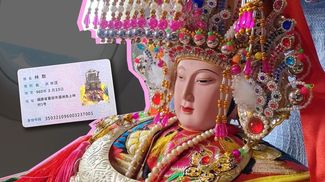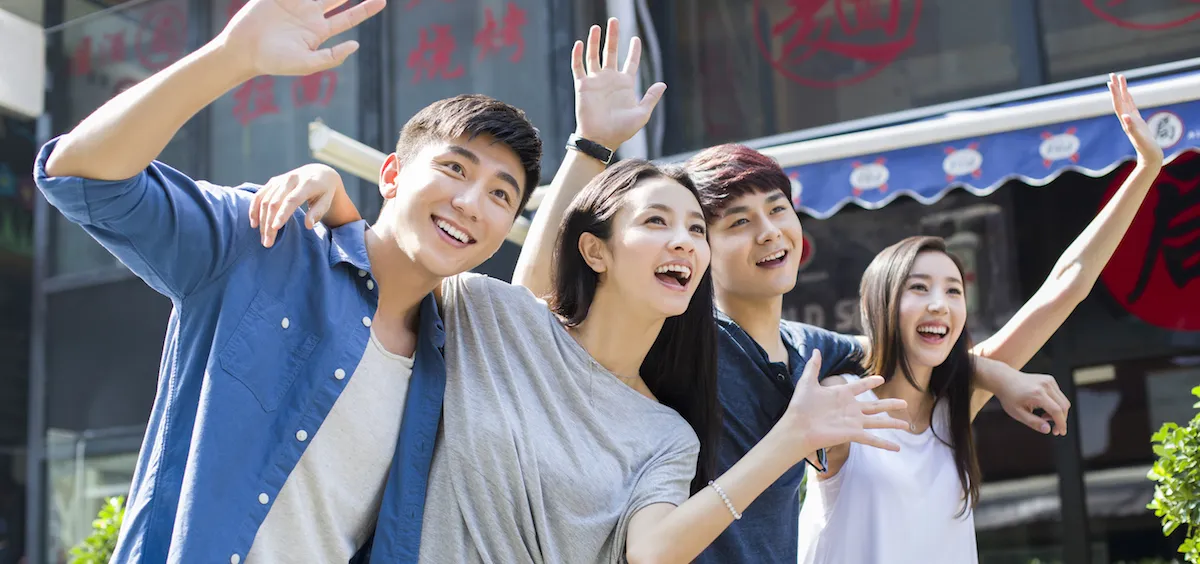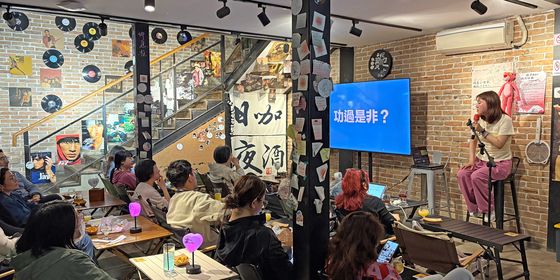Common ways to meet and greet in Mandarin
Despite what your Mandarin teacher may have told you, nihao is not the only or even the most typical way to greet somebody in Chinese—in fact, saying “hello” in China can take a number of different forms.
From asking whether you’ve eaten to discussing where you’ve been, conversation starters can be confusing to the uninitiated. Below are some of the most common Chinese greetings, essential to navigating life in China outside of the classroom.
你好 (Nǐhǎo)! /您好 (Nínhǎo) !
Let’s start with the classic. Although not the hippest, it’s tough to go wrong with the original “hello.” 您好 is the polite form, used for greeting those of high social status, including elders and superiors.
喂 (Wèi) !
This is the greeting of choice when answering a phone call, often followed by 你好/您好. 喂 (Wèi) didn’t start out as a greeting; rather, when telephones first appeared in China, reception was often poor and 喂 was used to test whether the receiver could hear clearly. 喂 can be used as an in-person greeting between friends, but can be considered impolite if used in the wrong context.
大家好 (Dàjiā hǎo)!/各位……好 (Gèwèi…hǎo)!
Use this when greeting a group of people at once. 大家好 (Dàjiā hǎo) is the more casual form to say “hello, everybody,” while 各位好 (Gèwèi hǎo) is more formal and can also include a group noun, such as in 各位同学好 (Gèwèi tóngxué hǎo, Hello classmates), 各位同事好 (Gèwèi tóngshì hǎo, Hello colleagues), 各位老师好 (Gèwèi lǎoshī hǎo, Hello teachers).
好久不见 (Hǎojiǔ bújiàn)!
“Long time no see,” as it has been translated, is the perfect greeting for old friends and family you haven’t seen for a long time. The phrase expresses pleasure at finally meeting someone after a stint apart.
最近还好吗 (Zuìjìn hái hǎo ma)?/最近怎么样 (Zuìjìn zěnmeyàng)?
A common phrase rarely taught in classrooms, this phrase is equivalent to “How have you been (recently),” and is much more natural than the over-taught but basically irrelevant 你好吗?(Níhǎo ma, How are you?) 最近怎么样? (Zuìjìn zěnmeyàng?) is a casual greeting used between peers. Common responses can be as brief as “挺好的” (Tǐng hǎo de, very well) or “还不错” (Hái búcuò, not bad).
吃了吗 (Chīle ma)?
A very common greeting that can cause some confusion to those unfamiliar with the Chinese culture. In the past, food shortages in China were common, and having three meals a day was by no means guaranteed—asking “吃了吗?” (Chīle ma, have you eaten?) was a way of expressing one’s concern and care for the other party, perhaps even leading to an offer of food for a hungry friend. More recently, the phrase has become a catchall greeting, commonly answered simply with “吃了,你呢?” (Chīle, nǐ ne? I’ve eaten, and you?)
干嘛呢 (Gǎn má ne)?/ 忙什么呢 (Máng shénme ne)? / 去哪儿 (Qù nǎr)?
Although they may seem a bit nosy, these greetings are regularly used to start a conversation, skipping the “hello” completely to ask people what they’re doing, what they’re busy with, and where they are going, respectively. Similar to 吃了吗, these greetings also shows care and concern for the other party. Answers need not contain much detail, for example, 去上课,你呢?(Qù shàngkè, nǐ ne? I’m going to class, you?) or 出去了 (Chūqùle, I’m going out).
来了 (Lái le)?
Often used for visiting neighbors or relatives and for returning customers, this warm greeting makes visitors feel welcomed. Earlier this year, a Heilongjiang barbecue stall owner, later nicknamed “Kidney Sister” (腰子姐), went viral in large part because of her signature greeting: “来了老弟!” (Láile lǎodì! Brother, you’ve come!) A variation of this greeting, 回来了 (Huíláile), can be used to greet someone’s return, such as a coworker returning from a business trip or family members coming back home after going abroad.
哈罗 (Hāluó)/嗨 (Hāi)
Loanwords of “Hello” and “Hi” respectively, these two greetings are informal and mainly used by young, urban Chinese.












